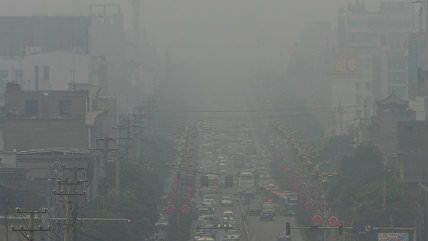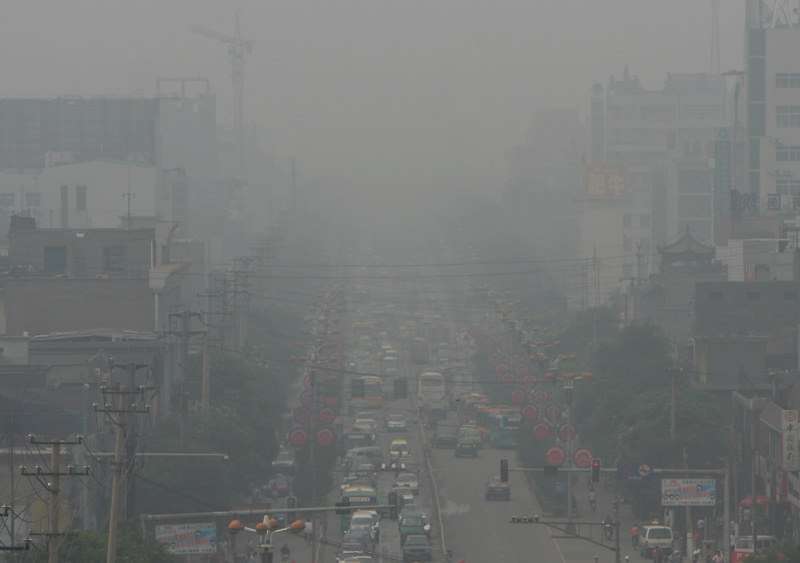The U.S.-China Climate Change Deal Is Terrible. Fortunately, It Doesn't Matter
Guess what? America is not really doing anything we weren't going to do anyway, and neither is China.


At a Beijing news conference, President Barack Obama called a new China-United States climate deal a "historic agreement." Grist assures us that the "new U.S.-China climate deal is a game changer." Bloomberg Businessweek concurred, explaining "why the U.S.-China emissions pact could be a climate change breakthrough." Vox took it even further and declared, "Obama's climate deal proves China is the biggest foreign policy success of his presidency." (Which may be true. And sad.) The rest of the media, unsurprisingly, offered comparable takes on the deal.
I guess that when you're on the lookout for good news, any morsel will do. But there are two problems with treating the deal as big news: 1) We're not really doing anything we weren't going to do anyway, and 2) Neither is China.
Considering the players, it's also appropriate to point out that the Obama administration plans on using Chinese-style governance to satisfy our end of the climate agreement. It's what one-party autocracy enthusiast Thomas Friedman might call "leadership."
Specifically, though, the United States pledges to impede its own economic growth right now, in significant ways, while China will be free to continue building coal-powered plants, expand its economy, and cement its place as the world's leading polluter—perhaps even doubling its output against ours.
Until 2030, that is, or some year around that time, when China's carbon emissions are expected to peak. Specifics aren't important. At that point, the Chinese promise that they will implement some vague action plan at some vague point in the future. All we need to do is trust them. The agreement contains no binding language requiring any goals to be met. Our president is no Scott Boras.
A skeptical person might point out that China rarely keeps its promises on environmental issues. In 2009, in the lead-up to a global summit on climate change in Copenhagen, China set a "firm target" for limiting greenhouse gas emissions and said it would aim to reduce its "carbon intensity" by 40 to 45 percent by 2020. It has apparently moved that deadline to 2030. China made similar promises ahead of the Doha, Qatar, conference in 2012. But maybe things have changed over there. They've changed here, as well.
The Obama administration has promised that the United States will cut greenhouse gases by between 26 and 28 percent by 2025, which basically puts it on track to fulfill the terms offered to China whether the deal is in place or not. There is a high probability, though, that political forces will conspire to override this executive power play. At the very least, any attempt to make the agreement binding would be met by an uncooperative Senate and bipartisan opposition, as Democrats in energy-producing states are unlikely to support anything resembling this lopsided agreement.
This didn't stop enthusiastic writers such as Christopher Flavelle at Bloomberg from arguing that the president has finally backed the GOP into a corner: "Republicans' best argument against regulating carbon emissions from U.S. coal plants has always been this: If China won't act, what use is it?" Actually, though that argument still stands, it's far from the best. The best argument is that impeding economic growth by artificially inflating energy prices is immoral because it needlessly hurts consumers and workers. The best argument is to point out that whatever China decides to do, we should trust that our technological advances in efficiency and adaptability will allow us to continue to have a high standard of living and keep our environment clean.
The New York Times (which says the deal allowed Obama "to reclaim some of the momentum he lost at home") and others treat the deal as a big political victory for the president. Despite voters' tendency to tell pollsters climate change concerns them, the fact is that not a single midterm race was primarily focused on climate change. Not a single candidate, denier or not, lost an election because of his or her position on climate change. Can Democrats say the same about issues such as coal production and the Keystone XL pipeline?


Show Comments (4)